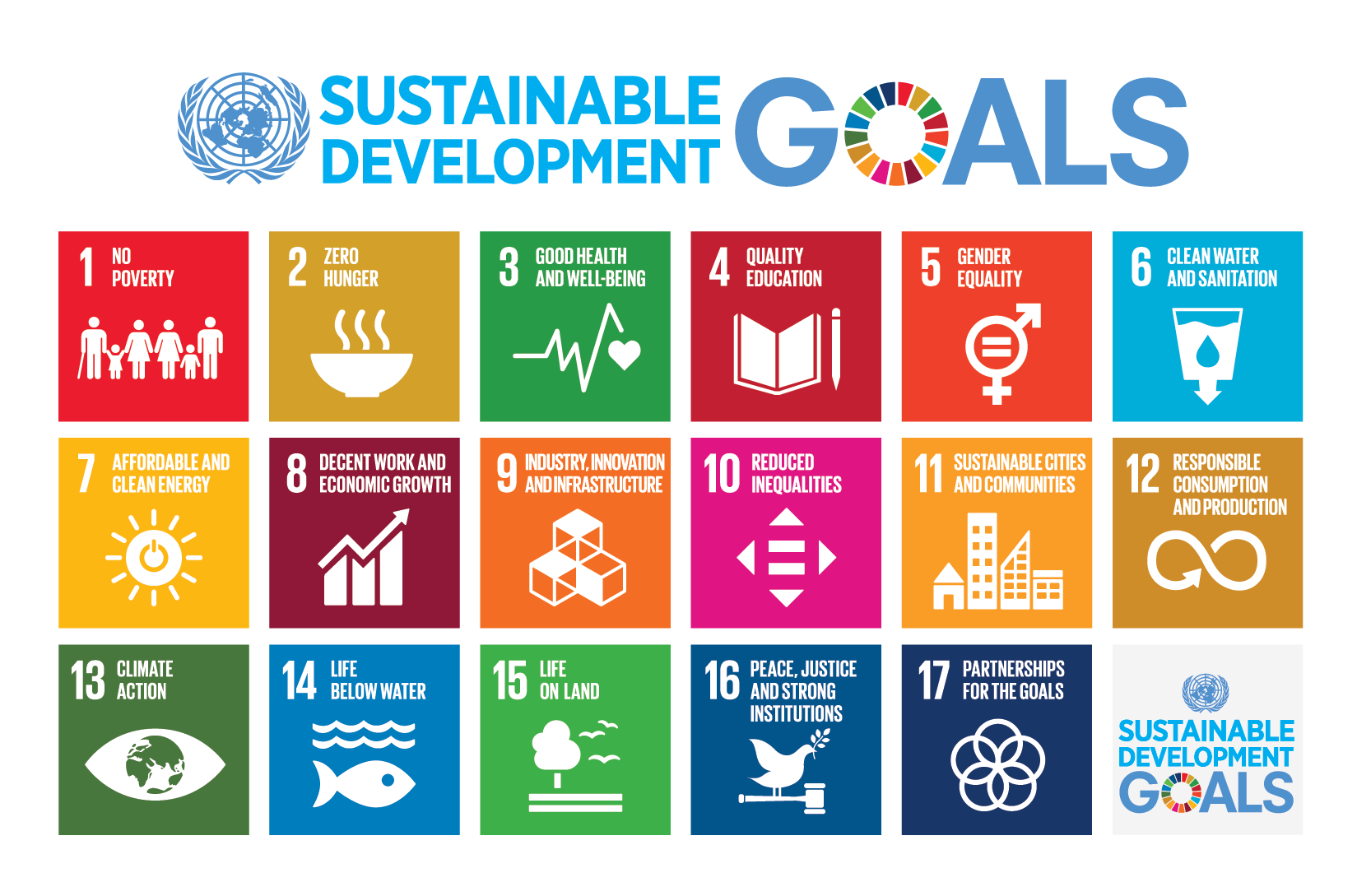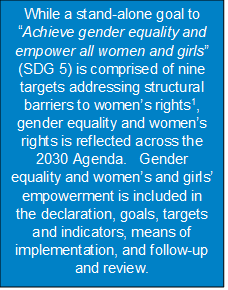The 2030 Agenda for Sustainable Development

The 2030 Agenda for Sustainable Development, and the 17 Sustainable Development Goals (SDGs), is a global action plan to end poverty, protect the planet, and ensure prosperity for all people.  It is based on a multi-partnership. The Sustainable Development Goals are integrated and indivisible, grounded in the three dimensions of sustainable development: economic, social and environmental. By unanimous adoption of General Assembly resolution 70/1, all countries committed to implement Agenda 2030 and the SDGs in accordance with their national development priorities “to end poverty and hunger everywhere; to combat inequalities within and among countries; to build peaceful, just and inclusive societies; to protect human rights and promote gender equality and the empowerment of women and girls; and to ensure the lasting protection of the planet and its natural resources.”
It is based on a multi-partnership. The Sustainable Development Goals are integrated and indivisible, grounded in the three dimensions of sustainable development: economic, social and environmental. By unanimous adoption of General Assembly resolution 70/1, all countries committed to implement Agenda 2030 and the SDGs in accordance with their national development priorities “to end poverty and hunger everywhere; to combat inequalities within and among countries; to build peaceful, just and inclusive societies; to protect human rights and promote gender equality and the empowerment of women and girls; and to ensure the lasting protection of the planet and its natural resources.”
Central to the 2030 Agenda is the commitment of States “to leave no one behind”, and to “reach the furthest behind first”. Gender equality and women’s and girls’ empowerment is a critical issue, and is included in the declaration, goals, targets and indicators, means of implementation, and follow-up and review.
While many countries in the Arab region have made some significant progress in bridging the gender gap (i.e. on education), major gaps remain in influence, power, and access to/control over resources between men and women. In 2017, the region ranks with the highest distance in reaching gender parity with a remaining gender gap of nearly 40 per cent. This has been compounded by both an increase in poverty and disparities as well as conflicts. While both men and women have been impacted, women remain disproportionally affected due to gender inequality.
Our Solutions
The 2030 Agenda is embedded in all work undertaken by UN Women across the region. The UN Women Regional Office for Arab States (ROAS) partners with regional and national authorities, civil society organizations, UN agencies, and other institutions to advocate to meet gender equality and women’s empowerment and to ensure that no woman, man, boy or girl is left behind, reaching those furthest behind first. This involves raising awareness on the 2030 agenda, enhancing partners’ capacity to implement the SDGs, building networks around SDG implementation and producing knowledge.
The comprehensive and integrated nature of the 2030 Agenda also requires increasingly participatory evaluation approaches. UN Women has been working to strengthen the demand and the use of gender-responsive evaluations.